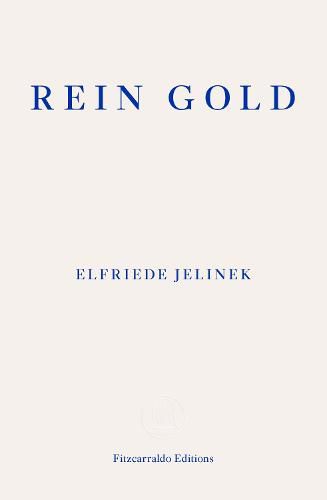Readings Newsletter
Become a Readings Member to make your shopping experience even easier.
Sign in or sign up for free!
You’re not far away from qualifying for FREE standard shipping within Australia
You’ve qualified for FREE standard shipping within Australia
The cart is loading…






2004 Nobel Prize in Literature laureate Elfriede Jelinek’s Rein Gold reconstructs the events of Wagner’s epic Ring cycle and extends them into the present day. Originally written as a libretto for the Berlin State Opera, Rein Gold is a buhnenessay, an essay for the stage, structured in the form of a dialogue between Wotan, father of the gods, and his favourite daughter, Brunnhilde, in the third act of The Valkyrie. The book opens with Brunnhilde diagnosing her father Wotan to be a victim of capitalism because he, too, has fallen into the trap of wanting to own a castle he cannot afford. In stream of consciousness monologues, Brunnhilde and Wotan touch on a number of events from the days of the Nibelungen Saga to the 2008 financial crash caused by the US subprime mortgage crisis and the role of banks there in, and through Marx’s ideas as developed in Das Kapital, written almost contemporaneously with Wagner’s Ringcycle.
While rooted in Wagner’s libretto, this sophisticated mesh of interwoven ideas also covers recent and current events, such as the way world leaders act in times of financial crisis, or the murders committed by the German neo-Nazi NSU group. Jelinek offers fascinatingly rich context for current political debates, as well as some intriguing new ideas, while never straying far from her leitmotif, the birth of capitalism.
$9.00 standard shipping within Australia
FREE standard shipping within Australia for orders over $100.00
Express & International shipping calculated at checkout
2004 Nobel Prize in Literature laureate Elfriede Jelinek’s Rein Gold reconstructs the events of Wagner’s epic Ring cycle and extends them into the present day. Originally written as a libretto for the Berlin State Opera, Rein Gold is a buhnenessay, an essay for the stage, structured in the form of a dialogue between Wotan, father of the gods, and his favourite daughter, Brunnhilde, in the third act of The Valkyrie. The book opens with Brunnhilde diagnosing her father Wotan to be a victim of capitalism because he, too, has fallen into the trap of wanting to own a castle he cannot afford. In stream of consciousness monologues, Brunnhilde and Wotan touch on a number of events from the days of the Nibelungen Saga to the 2008 financial crash caused by the US subprime mortgage crisis and the role of banks there in, and through Marx’s ideas as developed in Das Kapital, written almost contemporaneously with Wagner’s Ringcycle.
While rooted in Wagner’s libretto, this sophisticated mesh of interwoven ideas also covers recent and current events, such as the way world leaders act in times of financial crisis, or the murders committed by the German neo-Nazi NSU group. Jelinek offers fascinatingly rich context for current political debates, as well as some intriguing new ideas, while never straying far from her leitmotif, the birth of capitalism.